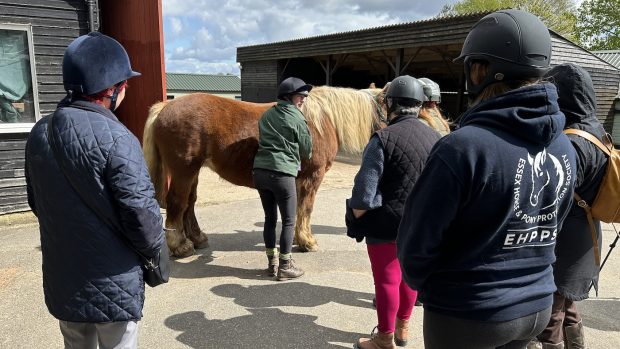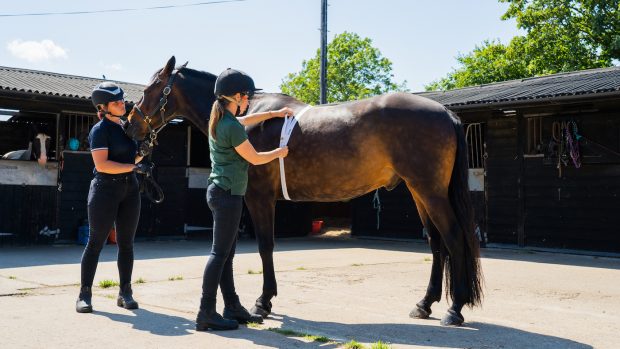Replacing some hay with straw could be an important weapon in the fight against equine obesity, a new study has shown.
Redwings Horse Sanctuary and researchers at the University of Edinburgh hope their study, published in leading journal Veterinary Record, will help owners manage horses’ weight in winter, and so reduce the risk of weight-related welfare issues.
In a trial at Redwings, 40 overweight native-breed equids living out were divided into two groups: group A was fed 50% hay and 50% straw, while group B was fed solely hay. All were unrugged and had no extra exercise.
“As the UK’s largest horse sanctuary, Redwings cares for a large population of native ponies,” said a charity spokesman. “Their diets are often supplemented with hay during the winter when the grass is poor, but the charity’s vets were concerned that some ponies were gaining weight, which was putting them at a higher risk of laminitis in the spring and summer.
“They decided to team up with researchers at the University of Edinburgh to see if they could come up with a way to safely encourage weight loss in these ponies over the winter, so when they started to enjoy the spring grass, the additional weight they naturally gain wouldn’t have such an impact on their hormones.”
The ponies given 50% straw lost an average of 27kg between December 2018 and March 2019, while of the 15 fed just hay, only three lost weight and the rest gained it, putting on an average of 6kg. The weight changes were classed as statistically significant.
Roxane Kirton, who undertook the study while working as a welfare vet at Redwings, said: “This was a significant result for Redwings, and will hopefully be a useful study for all owners of native ponies, as we had previously found it very difficult to help this particular group lose weight.
“With such a large horse population to care for, we can’t and don’t want to put every pony on a crash diet. Restricting food has such an impact on a horse’s behaviour and welfare, so we were keen to look at more creative, long-term management options. When discussing human obesity, we often talk about making sustainable lifestyle changes and it shouldn’t be any different for horses.”
Continues below…

‘They’re getting fatter and fatter’: Vet’s warning over obesity-related equine deaths
‘As a rule, you’ll get much more criticism on a livery yard if you can see ribs than if your

‘The fattest I’ve ever seen’: rescue of pony left to gorge to obesity
Rescuers were unable to put a headcollar on the pony due to the excess fat behind his ears

Subscribe to Horse & Hound this spring for great savings
There were no incidents of colic reported in either group during the research period.
Ruth Morgan, co-author of the study and researcher at the University of Edinburgh, added: “Straw is much lower in calories than hay and it takes horses longer to eat it as it is less digestible. Both these features are great, for weight loss and for the welfare of the horses, who like to eat for up to 20 hours a day.
“We’ve all watched horses scoff all their hay allowance in a short period of time and then stand watching us by the gate. Straw occupies the horses for much longer but without increasing their calorie intake. We would, however, warn owners to make sure their ponies’ teeth are in good shape before introducing straw as it does take more chewing — this will also reduce the risk of colic. We hope the success of the trial means this research will go on to help even more ponies.”
We continue to publish Horse & Hound magazine weekly during the coronavirus pandemic, as well as keeping horseandhound.co.uk up to date with all the breaking news, features and more. Click here for info about magazine subscriptions (six issues for £6) and access to our premium H&H Plus content online.





